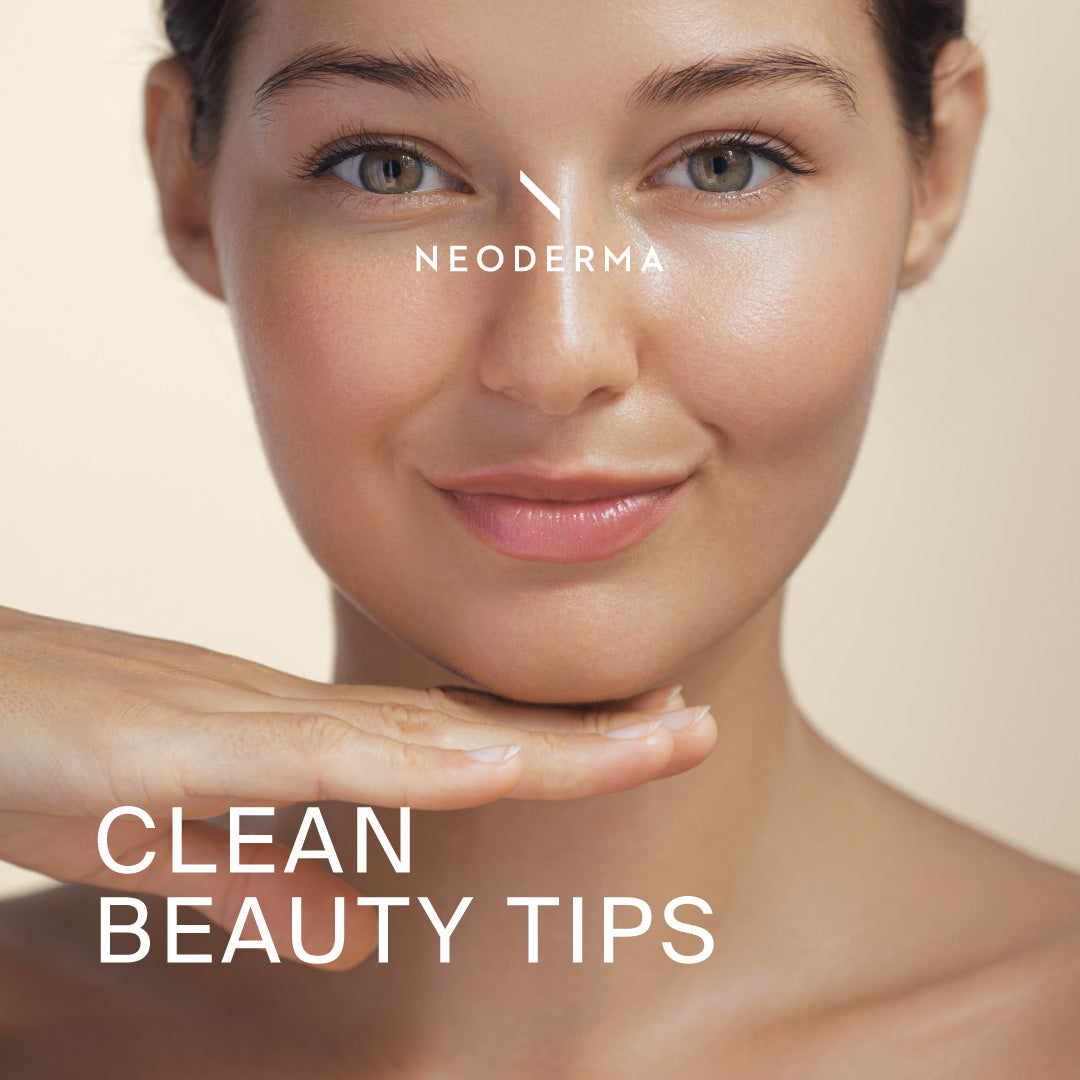Your cart is empty.

Are you ready to give your skincare routine a clean and green makeover? To help you get started, here are some clean beauty skincare tips that will help you nurture your skin responsibly and sustainably!
(1) Read the ingredient labels. Start by familiarizing yourself with ingredient lists on skincare products. Look for products with natural ingredients and avoid those with long lists of synthetic chemicals.
(2) Choose non-toxic products. Opt for skincare products free from parabens, sulfates, phthalates, synthetic fragrances, and artificial colors. These substances may be harsh on the skin and pose long-term health risks. Clean beauty emphasizes using natural or safe synthetic ingredients that provide harm-free care.
(3) Incorporate antioxidants. Antioxidants like vitamin C, E, and ferulic acid are powerful natural ingredients that protect the skin from damage caused by free radicals. Look for firming facial serums and natural face moisturizers that contain these ingredients to support skin health and combat signs of aging.
(4) Hydrate with natural moisturizers. Natural moisturizers for dry skin, such as hyaluronic acid, niacinamide, squalane, or plant-based oils (like jojoba or argan oil), can provide excellent hydration without synthetic additives. These ingredients mimic the skin's natural moisturizing factors, promoting a healthy skin barrier.
(5) Exfoliate gently. Instead of using harsh physical scrubs, opt for gentle exfoliants like enzymes from fruits (papaya, pineapple) or a mild alpha-hydroxy acid (AHA). These natural exfoliating agents help remove dead skin cells without damaging the skin's surface.
(6) Embrace minimalism. Skinimalism, or using fewer products to achieve a healthy skin appearance, aligns perfectly with clean beauty. Simplify your skincare routine with only essential products that serve a purpose. This not only benefits your skin but also reduces waste and consumption.
(7) Support ethical brands. Choose to support natural skincare brands that are transparent about their sourcing, manufacturing processes, and ethical standards.